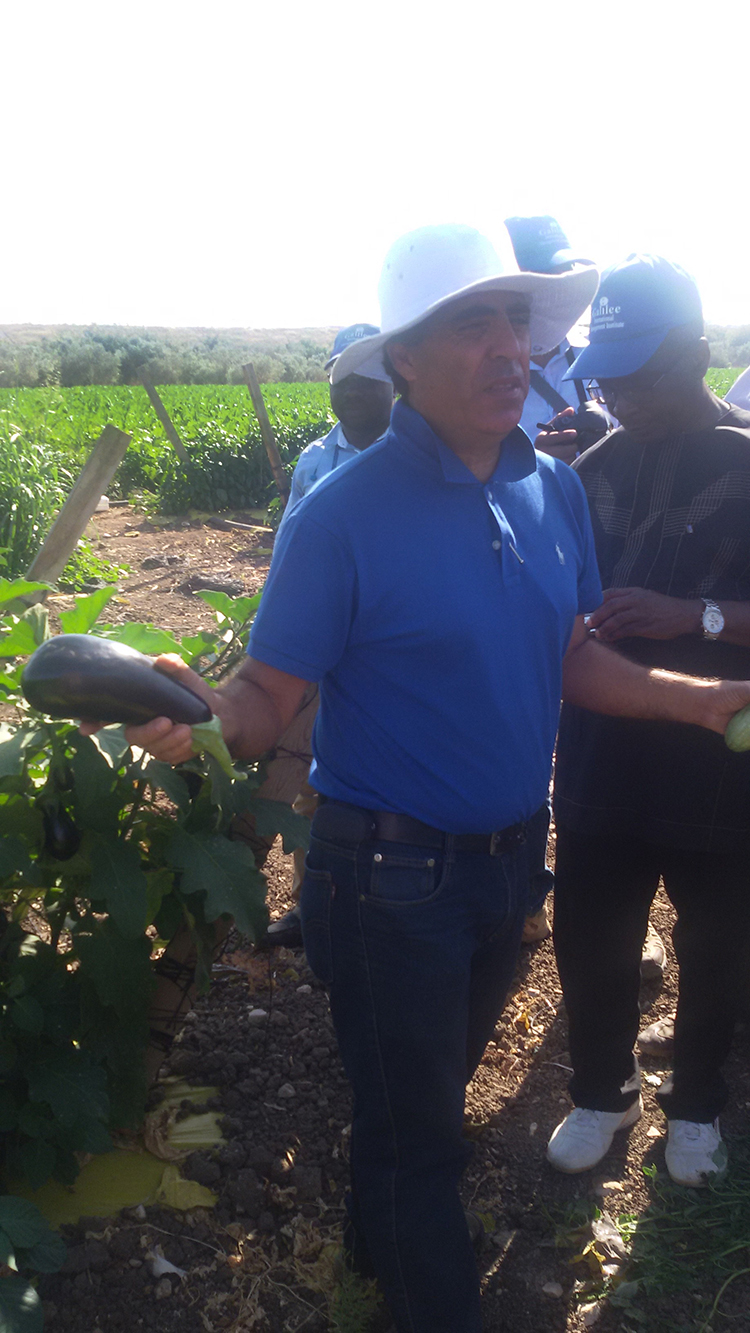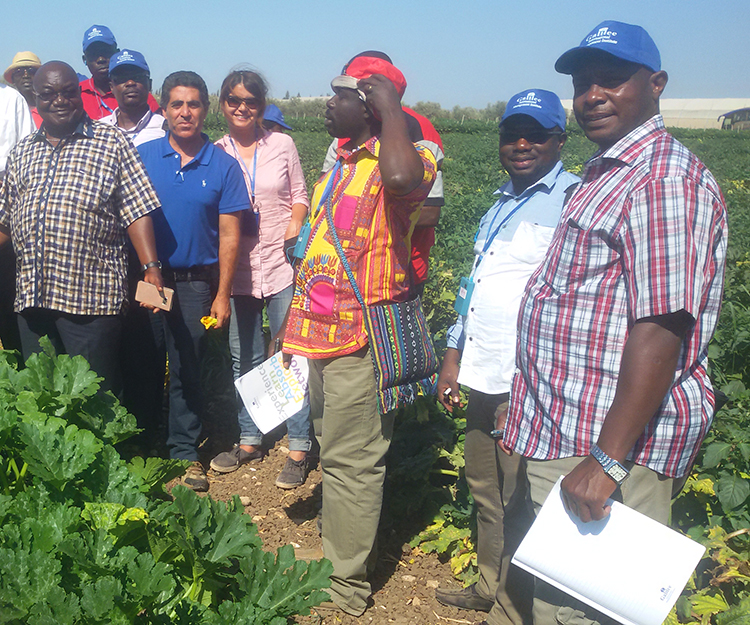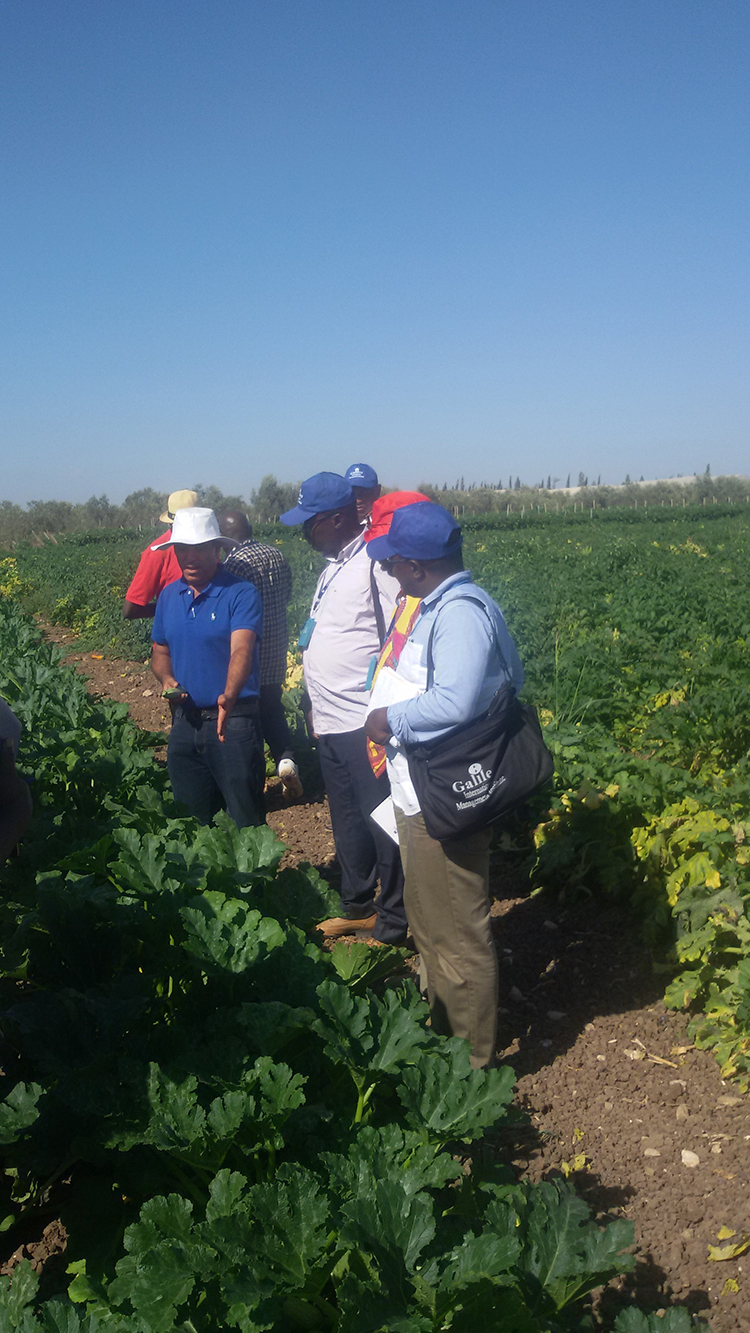Mr. Nabeel Gnayem - Senior Agronomist
Spotlight: Mr. Nabeel Gnayem - Senior Agronomist
Galilee Institute Lecturer Mr. Nabeel Gnayem is a senior agronomist. He received his MSc from the Faculty of Agriculture at the Hebrew University, Jerusalem. Mr. Gnayem has 28 years of experience, 23 of them as a leading advisor at the Israeli Ministry of Agriculture for vegetables and strawberry cultivation. Mr. Gnayem shares his latest work and innovations, taking place in crop production and crop management in Israel, with GIMI participants.
GIMI: Tell us about your work and research.
During my master studies and advisory work I contributed to applicative research in the area of vegetable production by introducing wide range of advanced technologies of greenhouses, plastic culture, irrigation and fertilization control equipment, IPM, hydroponics and soil less culture in Israel and in other countries (including Egypt, Jordan, Bosnia, Sri Lanka, Russia, Turkey, Kazakhstan, Azerbaijan, Ukraine, Morocco, Ethiopia, South Africa, Tunisia, Mexico, El Salvador and Nicaragua).
Why did you establish your two companies - High Green Tech Ltd and Fine Seeds Ltd?
After I finished my duties in the Ministry of Agriculture, I established High Green Tech for consulting and agricultural projects and Fine Seeds as a seed company for breeding, production and marketing of hybrid seeds of vegetables in Israel and abroad. Some of our tomato, pepper and cucumber varieties are registered in Africa and Europe. Fine Seeds operates by utilising 1 hectare of greenhouses and 1 hectare of open fields, in Baqa El Garbiya, to conduct screening trials and the breeding and production of seeds (tomatoes, cucumbers, peppers, squash, aubergines, melons and more).

What are your companies currently working on?
We are working on very interesting methods of saving water by using very efficient irrigation control equipment of Mottes and Auto Agronom. We have saved 80% of fertilizers and 60% of water by introducing these tools which include soil sensors for Oxygen, PH, EC, NO3, Tensiometres located in the root zone system and broadcast via internet to the control panel that operates "automatic pilot" irrigation and fertigation exactly by plant and root system demands. We also proved that not only there was no reduction in production and quality but and increased yield of 15%.
What innovations have you developed to protect plants?
We have developed and introduced technology for grafting vegetable seedlings (cucumbers onto pumpkins and tomatoes onto wild tomatoes). This is to prevent soil-borne disease (including Nematodes and Fusaruim Crown Rot), soil salinity and the chemical fumigation of soil. These trials have made technology applicable and easy for farmers in Israel. An established 40-80% of seedling usage in Israel is grafted.
What are some of the latest technological innovations in postharvest management in Israel?
Postharvest aims to preserve fruit and vegetable quality during shipping for export and the local markets. Some transitional countries lose up to 30-40% of fresh produce because of mishandling and improper postharvest treatment. Israeli researchers and private sector companies have developed "wise" plastic bags for fresh produce to extend the shelf life by 10-30 days more than standard plastic bags. The wise bags are capable of changing the composition of gases to inhibit the maturing of fruits and vegetables. Israeli and other world-wide exporters are now using these bags and are reaping the benefits of this advantage.

How has modern technology changed the job of the farmer?
Modern farming is unique; therefore it needs unique people filled with hope and willingness to adopt innovation. Farming has become very challenging due to many new diseases, insects, the restricted demands for low residues of agro chemicals and the increasing demand for very high quality fresh produce. On the other hand, profitability of farming is decreasing day by day due to global trade and the logistics of export and import. Competition is the key word in fresh produce marketing. Farmers are struggling to win by developing new products; cutting costs; improving quality; increasing yield; acquiring new technologies and skills for efficiency. I would like to mention one of the major factors that have magnified farmers' efforts and facilitated success against all odds - Hybrid Varieties. New varieties developed over the last decade are helping vegetable growers to win battles but the still need to win the whole war. Growing these new hybrids has improved yield, quality and resistance to disease, insects, harsh climates and global warming. Our breeding programme at Fine Seeds has produced very advanced hybrids of tomato cluster varieties with high yield, quality and resistance that we are very proud of and sure that these hybrids will be accepted by greenhouse farmers to benefit by all the listed advantages.
What do you see as the most exciting area of research and development in crop production and management in Israel?
The Hydroponic System, especially NFT (Nutrient film technique) is the leading alternative technology for saving water, fertilizers and lessening the use of pesticides. It also increases the yield and quality of fresh leafy crops and some fruit and vegetables. I am involved in developing and introducing it to Israel and other countries. With this system we are capable of saving up to 90% of water and fertilizers by recycling drain water. The system is equipped with a very sophisticated irrigation and fertilization control system to allow using 10% of water and fertilizers.
The system includes a UV cylinder unit for the sterilisation of water and to avoid using pesticides, together with a very precise climate control system for cooling/heating and ventilation-shading. This system can be introduced regardless of soil quality and availability (even on the roofs of urban buildings in big cities). I think that this system will offer some solutions for many problems in the farming of vegetables and fruit. However, I am sure this is not the total solution and lot of work is still to be done by research and development.


